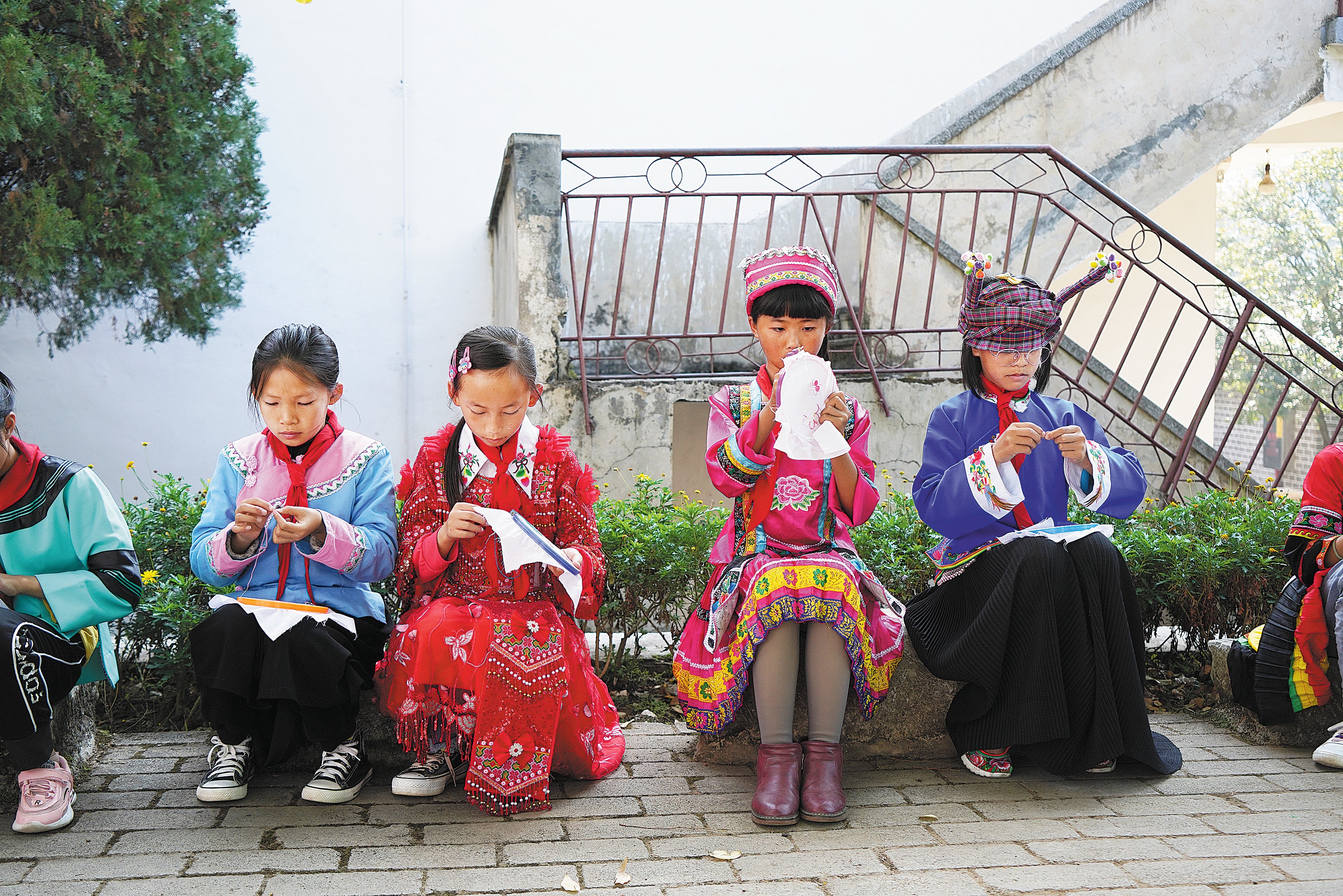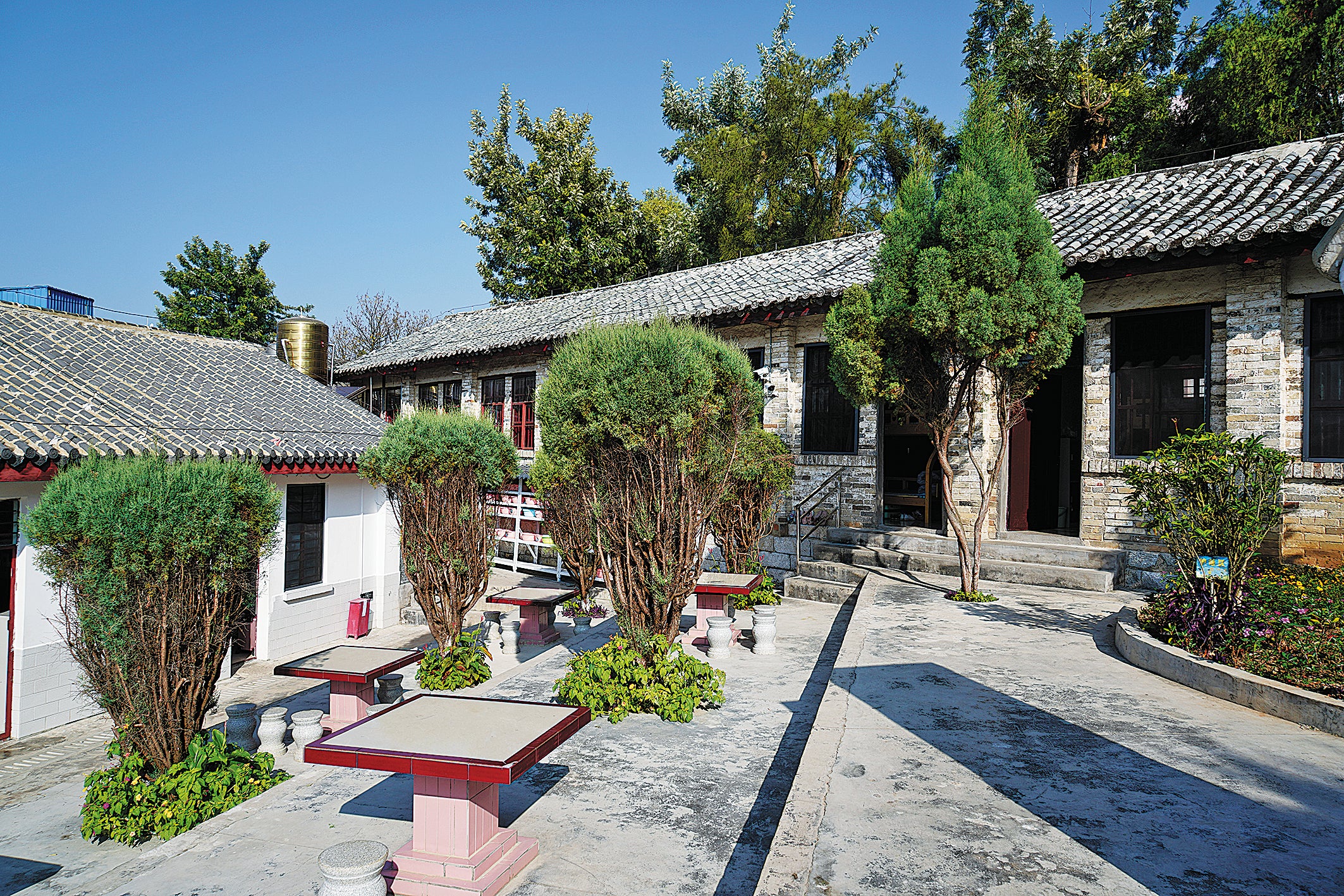A different class of learning
THE ARTICLES ON THESE PAGES ARE PRODUCED BY CHINA DAILY, WHICH TAKES SOLE RESPONSIBILITY FOR THE CONTENTS

Li Zhongmei, 11, of the Zhuang ethnic group, is learning embroidery in class among other skills.
The fifth-grader is a boarder from two all-girl classes at No 1 Primary School in Guangnan county, Wenshan Zhuang and Miao autonomous prefecture, Yunnan province.
It takes her about two hours to travel to school from her home in the mountainous region, including travelling along a six-mile-long dirt road. Villagers drop her by car and then she takes a bus.
Starting from 1995 the primary school began to enrol an all-girl class drawn from local ethnic minorities, offering a two-year education in fifth and sixth grades, exempt from all expenses, including tuition fees and board and lodging costs.
Outstanding pupils from impoverished families in the county’s remote areas are selected. After they graduate they study at the county’s best middle school, and boost their chances of going to college.
The graduates of the all-girl classes have gone on to become leading contributors in all walks of life, such as civil servants, doctors and teachers.
Liao Nongying, a veteran teacher there, says that in the 1990s the belief that men were superior to women was not uncommon in the county’s more remote areas.

“Since the programme has been running for years, it’s easier to recruit students, as more parents realise that knowledge can change destinies,” Liao says.
It was in 2006 that the school first received funding from private companies. Before that it depended on local governmental departments and public institutions.
“I like my new school life,” Zhongmei says. “The environment and teaching methods have changed (at the new school), but I don’t have much pressure regarding my study. I want to go to Tsinghua University. My dream is to be a teacher.”
The new school provides her with access to a library, and she loves to borrow books, especially those containing fairy tales.
Another pupil, Hou Shengli, 12, is also flourishing in the all-girl class. She visited the main town of Guangnan county for the first time when she enrolled at the school last year. In fact it was the first place she had seen other than her village. It was also the first time she had used a computer in class.
“I’m suited to this new life as I’ve made new friends,” Shengli says. “I like reading books and want to study hard to improve my maths.”
Besides ethnic-group culture classes, the primary school also offers biology classes and organises talks about safety, such as protection against sexual assault.
To broaden their horizons, the school calls for students to join the programme “learning science with my mother”, which is organised by the Science Popularisation Department at the China Association for Science and Technology. It encourages children from poverty-stricken counties to read aloud short science articles to their mothers, not only to foster closer parental bonds but also help popularise scientific knowledge in rural areas.
The first all-girl class, in 1995, had only 44 students. Among them was Pan Wenying, 37, of the Yao ethnic group, who now teaches Chinese language at the primary school.
“I applied for a job at the school because I feel attached to my alma mater,” Pan says. “I’m glad to return as a teacher, shouldering the responsibility of educating the next generation of our motherland.”
Previously published on Chinadaily.com.cn

Bookmark popover
Removed from bookmarks